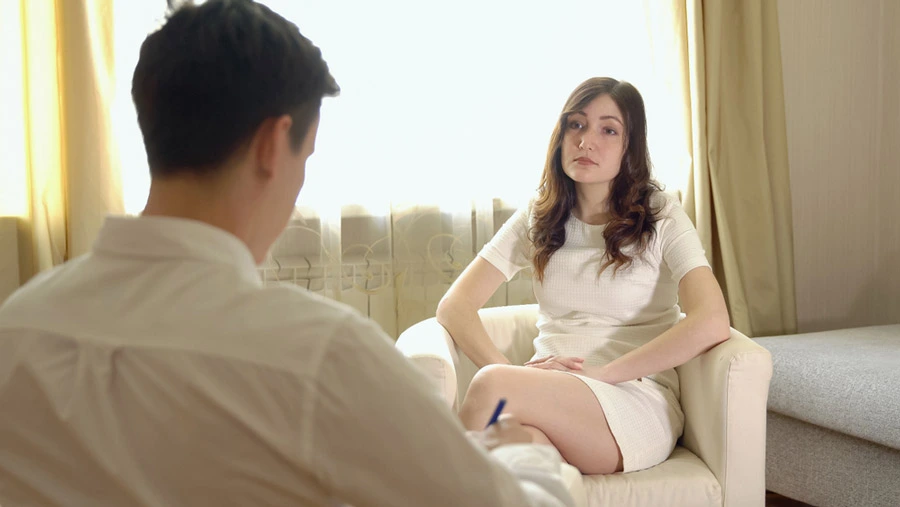Looking at the Roles of Behavioral Therapies at Catalina
When it comes to conquering mental health challenges, you need the proper tools in your toolbox. Talk therapy is a great way to get to the bottom of things, but it is not a one-size-fits-all solution. Treatment modalities differ in their focus and outcomes, so you need a therapist who is skilled in assessing which option will suit your mental health conditions the best.
Most of the time, it comes down to CBT vs. DBT, two of the most effective forms of evidence-based therapy used in addiction treatment. But what are the similarities and differences between these two models, and which is right for you or your loved one?
Catalina Behavioral Health offers a robust treatment program that utilizes both CBT and DBT depending on client needs. We can assess which tools will be the best fit for you and come up with a completely personalized treatment plan to help you with your mental health disorders and struggles.
Keep reading to learn more regarding what you can expect from CBT and DBT, and also uncover how to get help with the effective methods of treatment offered at Catalina!
24 Hour Detox and Rehab Helpline
What is Cognitive Behavioral Therapy (CBT)?
Cognitive behavioral therapy (CBT) focuses on the connections between thoughts, feelings, and actions that you may not even be aware of. It has proven to be helpful for issues like anxiety disorders, eating disorders, depression, substance use issues, and more. A mental health professional will help you to pinpoint the necessary changes to your mindset that can alter your behavior patterns.
Think of it like a triangle with thoughts, feelings, and actions on each of the three points. Cognitive behavioral therapy encourages people to consider how the three sides of the triangle are all connected. They might ask questions like how something made you feel, what you thought about a situation, and how that influenced your actions.
The goal of CBT is to change thought patterns and feelings to positively impact the outcome of your actions. Cognitive therapy models give you the tools you need to take a step back, evaluate your symptoms, and alter your course.
What is Dialectical Behavioral Therapy (DBT)?

Dialectical behavior therapy (DBT) was originally designed to treat borderline personality disorder but has since expanded to treat other conditions as well. Most people turn to DBT therapy when they want to learn how to manage some extreme emotions and focus on emotional regulation.
There is a strong emphasis on coping skills with dialectical behavioral therapy sessions. Your talk therapy sessions will dive deep into the things that are holding you back, whether those are thought patterns, negative behavior patterns, or something else altogether. The goal is to help you feel safe and to equip you with healthier coping skills.
People who undergo dialectical behavior therapy frequently have lower rates of self-harm and suicidal thoughts. If you struggle with remaining (or feeling) safe in your day-to-day life, DBT therapy might be the right fit for you. Behavioral research has shown this model to be particularly effective for PTSD treatment as well as for those with a treatment history of Complex Trauma.
Get Evidence Based Treatment Options Today!
What are the Differences in Cognitive vs Dialectical Behavior Therapy?
When seeking help for mental health conditions, you should know which type of therapy you ultimately want to pursue. There are benefits to both dialectical behavioral therapy and cognitive behavioral therapy, and many therapists will use elements of both in treatment.
Catalina Behavioral Health offers both types of therapy to give you robust treatment options that equip you to deal with your mental health condition or substance abuse head-on. Here are some of the major differences between CBT and DBT.
Setting Short-Term Goals
When many people enter into talk therapy, they do so with a goal-oriented frame of mind. You may find that certain aspects of your life are untenable, uncomfortable, and need to change. As a result, you may want to set some clear goals that will enable you to combat those problems with a therapeutic process.
CBT and DBT both focus on goal-setting, but CBT therapy tends to be more goal-oriented.
Think of it this way: cognitive behavioral therapy (CBT) wants you to minimize problematic behaviors. This can easily be measured and show you where you still have work to do.
On the other hand, DBT focuses on your emotional regulation which can be much harder to measure. Mental health support via dialectical behavioral therapy is there to help you with distress tolerance. Ultimately, this can influence negative thoughts and behavior patterns but is a bit harder to measure definitively.
Setting for Therapy Sessions

Another common difference between CBT and DBT is the way that sessions are handled. Cognitive therapy usually focuses on the individual therapy session. Your thoughts and feelings are unique to your personal experience. While sharing these ideas in group sessions can be helpful, you will likely get more out of the therapeutic process in individual sessions.
DBT treatment can be applied in individual sessions, but many recovery centers make good use of group therapy as well. Because it is more of a skills-based treatment modality, a therapist can teach many people at once about the specific mindfulness techniques that can mitigate psychological distress.
Length of Treatment Time
Whether you need help treating depression or some other types of mental health issues, you likely want to know when you will be able to “graduate” from your treatment.
If your goal is to return to your daily life as quickly as possible without the need for constant intervention and supervision, then CBT might be the right fit for you. In many mental health conditions, you may only need to attend CBT sessions for a few weeks. They can work relatively quickly and give you the tools you need to succeed in the real world.
DBT treatment is a little different and can take longer to replace those negative thoughts and behaviors. Many people will spend months learning mindfulness techniques and skills, along with practicing those skills in their daily lives.
Philosophical Differences
One of the major things that you will encounter in the difference between CBT and DBT therapy is their underlying philosophical differences. Dialectical behavioral therapy grew out of the framework for CBT, but they are fairly different in practice.
CBT is great for helping people to recognize cognitive distortions and alter them to influence their overall behavior. When you notice that you are falling victim to black-and-white thinking, catastrophizing, or some other distortion, you can replace those thoughts with something more helpful. CBT trains you to rewire your thinking.
While DBT focuses on some of these same issues, the goal is not necessarily to change these thoughts. Instead, you are focused more on acceptance and commitment therapy. You will recognize mental health issues directly and start to cope with them versus trying to change your thoughts. The emphasis is on putting new skills in place over changing thoughts and feelings.
Differences in Mental Health Issues Treated with Talk Therapy

While both CBT and DBT can be useful for some of the same issues, they have each been proven to help in unique situations. Understanding when each one is helpful is key to selecting the therapist treatment that will benefit you the most in the long run.
Cognitive behavioral therapy is helpful in treating some of the following conditions:
- Depression
- Anxiety
- Obsessive compulsive disorder
- Post-traumatic stress disorder or PTSD
- Specific phobias
- Complex Trauma or CPTSD
What are DBT Skills Used For?
DBT skills are designed for personality disorders with borderline personality disorder being the most common. However, they can help people who have thriving interpersonal relationships as well. Some of the most common mental health issues treated by DBT include bipolar disorder, self-harm, and chronic suicidal ideation.
Both types of therapy can be used for substance abuse issues. CBT will help you to modify thoughts and feelings while DBT replaces those negative coping skills with something more positive. This is why Catalina Behavioral Health offers both treatment modalities because they each have their strong points.
Confidential Assessment – Call Now!
The Focus of CBT vs DBT
Cognitive behavioral therapy is often touted as the gold standard of therapeutic interventions. Much ink has been spilled over its efficacy in treating common mental health conditions like anxiety and depression. In order to counteract mental illness, CBT treatment strives to interrupt your thoughts and replace them with more helpful suggestions that can minimize your distress.
DBT has a different focus altogether, though they may have the same outcome of reducing symptoms that make you feel uncomfortable. Effective treatment relies on a few basic tenets: mindfulness, interpersonal effectiveness, and distress tolerance. If you struggle with intense emotions or self-destructive behaviors, then a DBT therapist may be the better fit for you.
In other words, CBT focuses on changing your overall behavior while DBT focuses primarily on your social and emotional health.
Goal-Setting vs Acceptance
Along with the overall focus of CBT vs DBT, it is important to note here one major area where the two therapies diverge. Cognitive behavior therapy allows you to assess a situation and make a step-by-step plan for how you will change a given scenario.
For example, suppose that you are feeling stressed by an upcoming project at work. CBT aims to help you think about times when you encountered stress like this before, put coping skills in place, and make a detailed plan of what you need to do to accomplish your goal. This might mean asking for help or simply taking it in small bite-sized chunks.
DBT techniques differ from CBT in this area. Instead of trying to change your thought patterns, you will learn to embrace this type of discomfort. You will recognize the intense emotions that you feel and practice a radical acceptance of them. While it may not necessarily help with maladaptive behaviors, it can be extremely helpful when it comes to coping with suicidal thoughts or recurring self-harm.
Using Both Methods to Improve Emotional Response

When it comes to changing your thinking patterns, coping with negative feelings, and even the ability to improve interpersonal relationships, you might need a robust treatment plan. While there are several key differences between CBT and DBT, they do have a bit of overlap when it comes to giving you long-term success with mental health conditions.
In many cases, people will need to use a combination of both to treat their emotional responses with an emphasis on both individual and group sessions to learn the necessary skills.
A Range of Options to Help with Recovery Efforts
DBT helps with some of the more pressing concerns of being able to sit with your feelings and tolerate them, even when they feel overwhelming. CBT helps you to modify your thinking patterns so that you can choose different behaviors. Both DBT and CBT are core components to help clients modify their thoughts and behaviors well into the future.
As you can imagine, both are extremely helpful in a well-rounded treatment plan, regardless of what issue you might need to be treated. Both are effective in treating a wide variety of conditions and can help you to overcome difficult situations. Instead of choosing, get the best of both worlds by combining the two treatments into a customized treatment plan just for you.
Get Proven Treatment Options at Catalina Now!
Get the Behavioral Skills You Need to Succeed at Catalina
If you are ready to work with a mental health clinician who can help you interrupt your negative thoughts and replace them with proven skills, then it is time to contact Catalina Behavioral Health. We offer both types of therapy so that you can find an effective treatment regimen that will benefit you long-term.
Our clinicians can help you with DBT skills training, treating anxiety, and more.
When you are ready to put healthy behaviors in place, seek therapy with us so that you can get back to your daily life. Reach out to us today to learn more about common therapy practices and how we can help you to live a healthier life… all calls are confidential, so reach out for options today!





